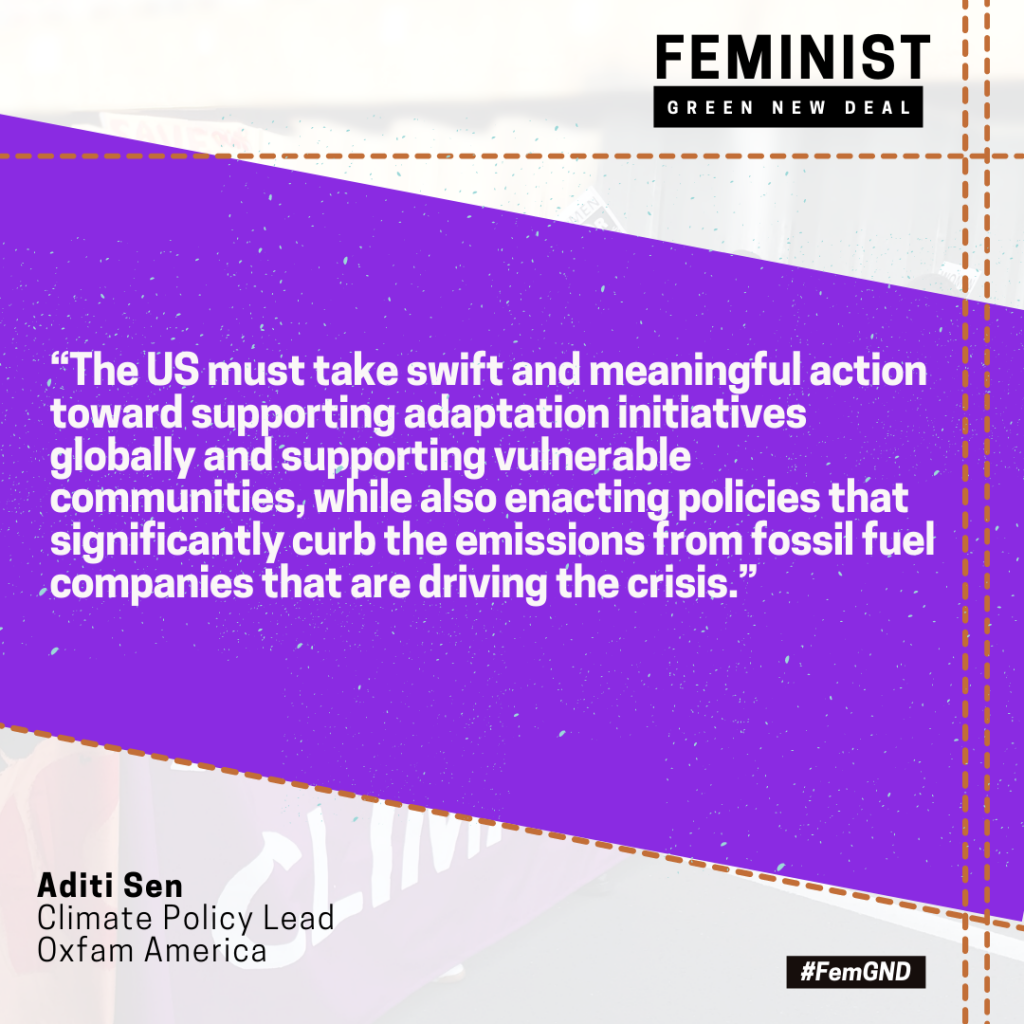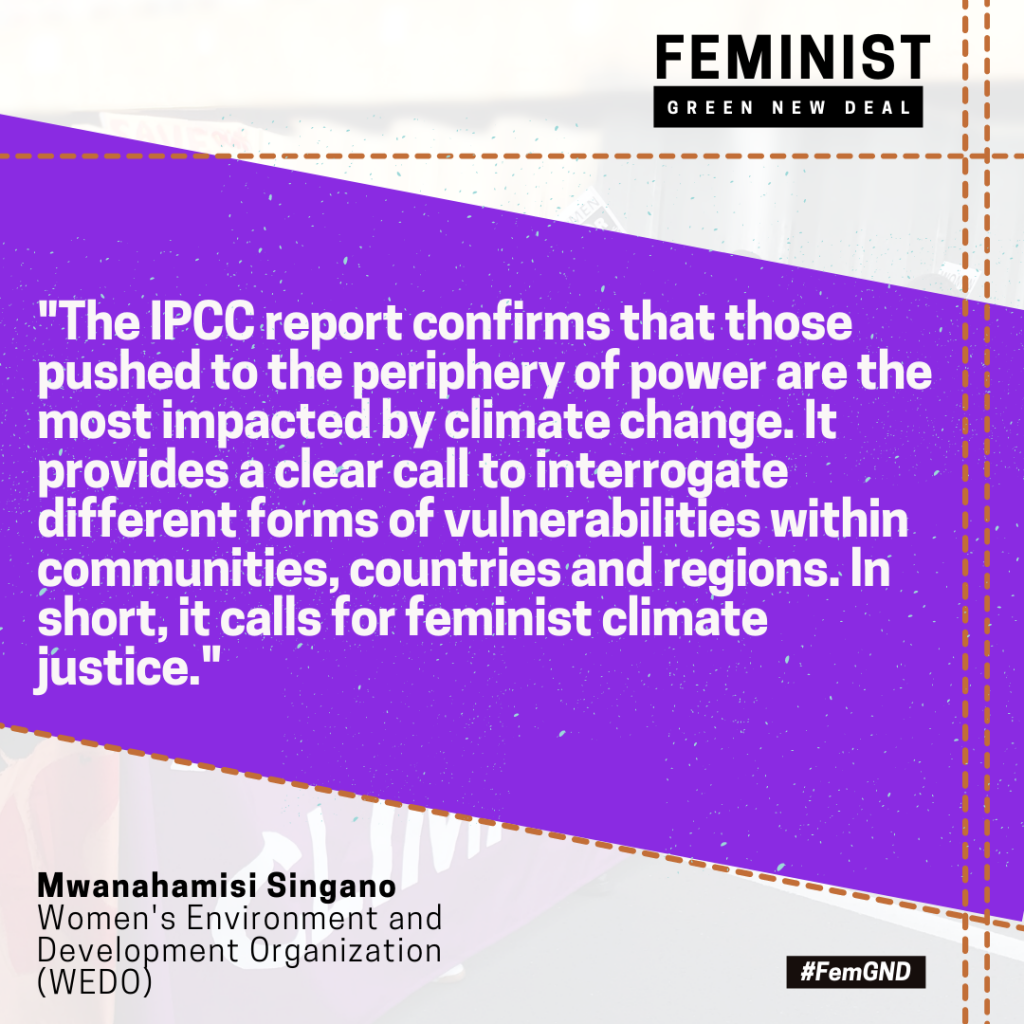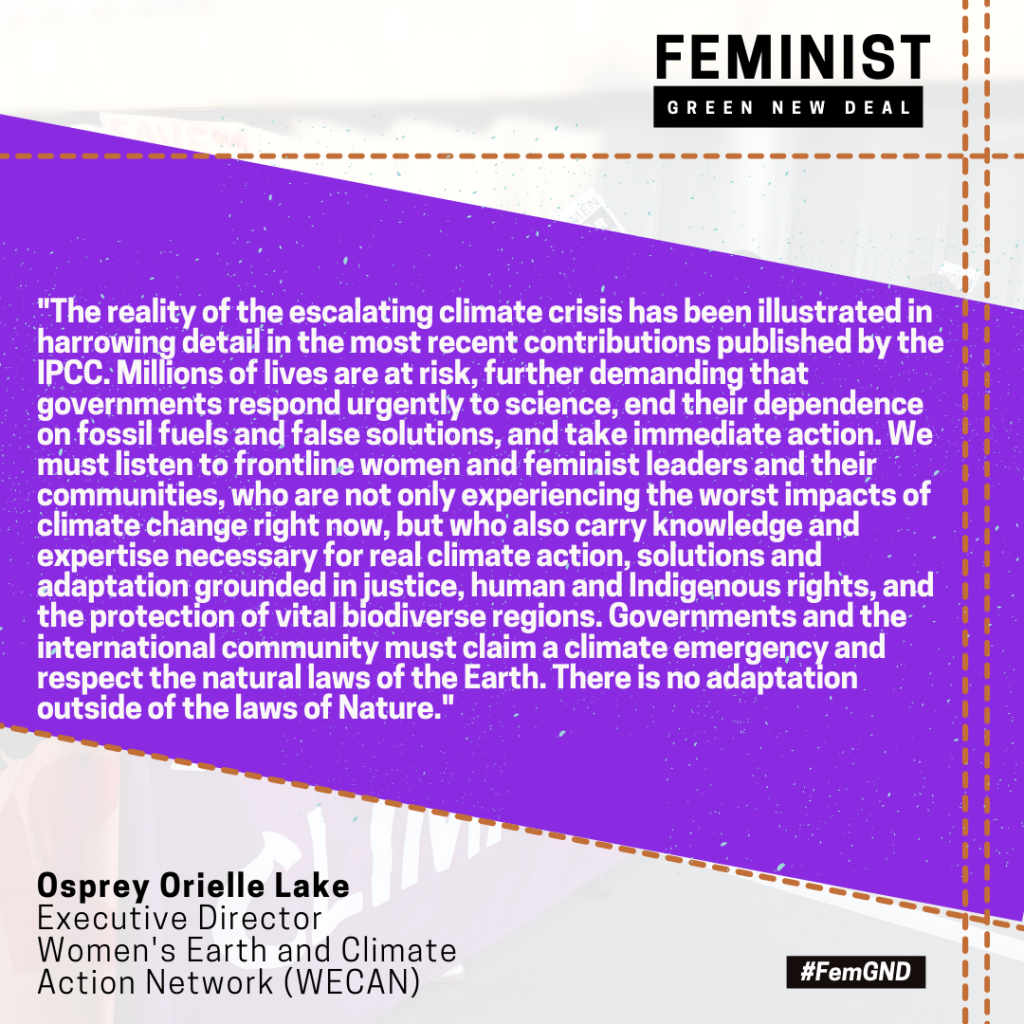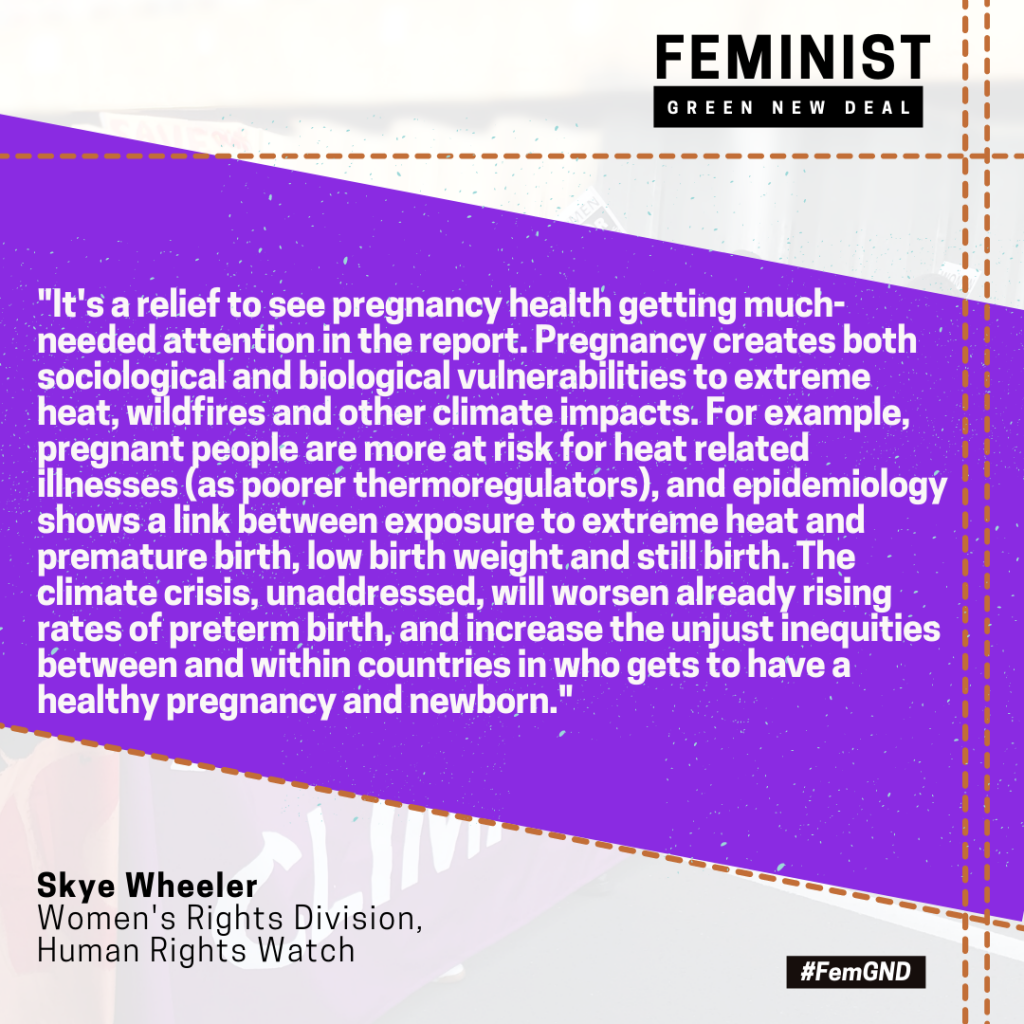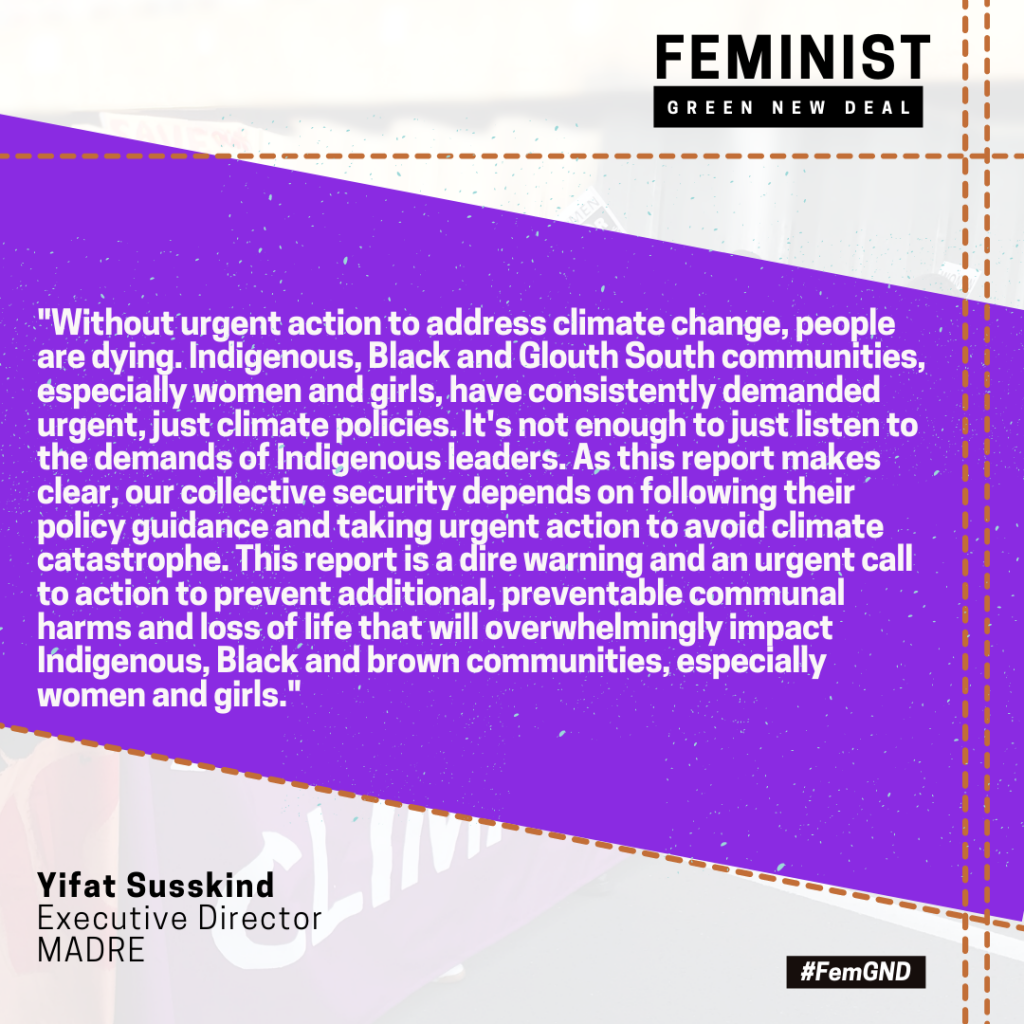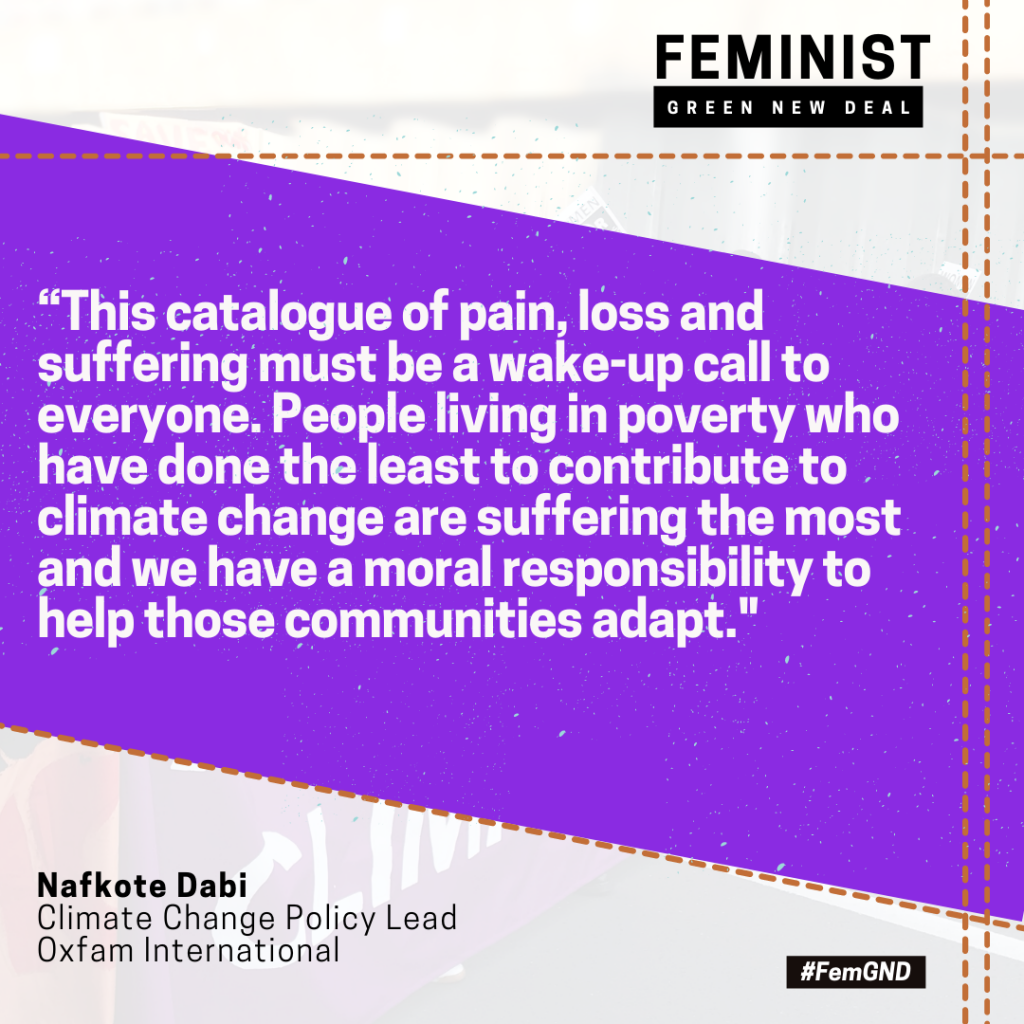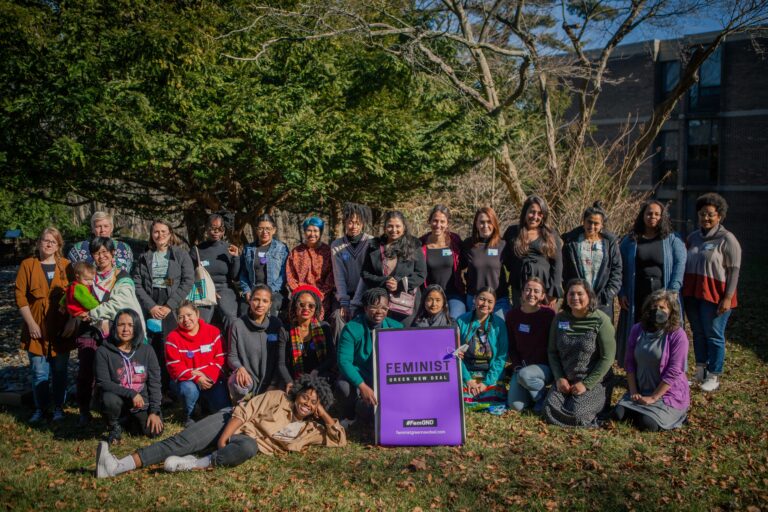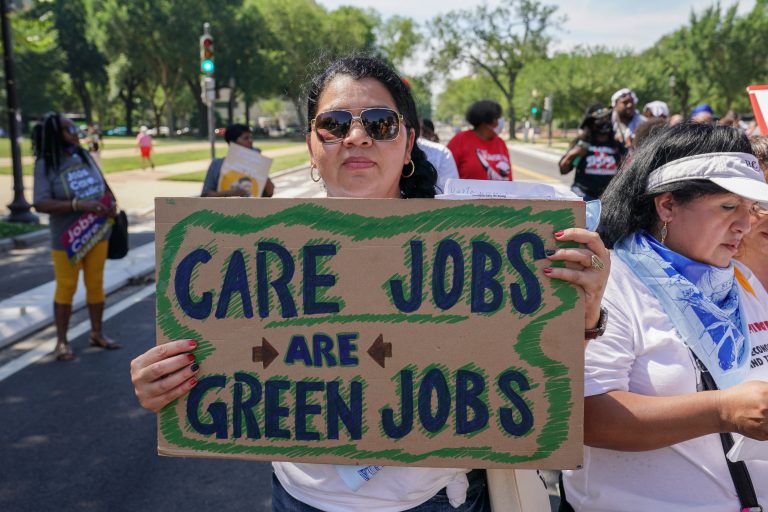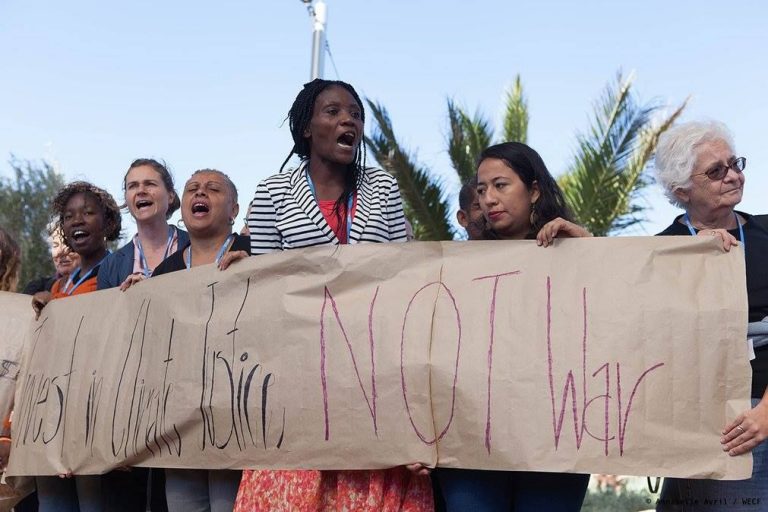The Intergovernmental Panel on Climate Change (IPCC) Working Group II published its contribution to the upcoming Sixth Assessment Report, synthesizing climate impacts, adaptation and vulnerability for communities, ecosystems, and regions worldwide. See the executive summary of the report here.
Find some feminist reactions to the report’s release below:
Text from photos (from top left to top right, then bottom left to right):
1: “The US must take swift and meaningful action toward supporting adaptation initiatives globally and supporting vulnerable communities, while also enacting policies that significantly curb the emissions from fossil fuel companies that are driving the crisis.” Aditi Sen, Climate Policy Lead, Oxfam America
2: “The IPCC report confirms that those pushed to the periphery of power are the most impacted by climate change. It provides a clear call to interrogate different forms of vulnerabilities within communities, countries and regions. In short, it calls for feminist climate justice.” Mwanahamisi Singano, Women’s Environment and Development Organization (WEDO)
3: “This catalogue of pain, loss and suffering must be a wake-up call to everyone. People living in poverty who have done the least to contribute to climate change are suffering the most and we have a moral responsibility to help those communities adapt.” Nafkote Dabi, Climate Policy Lead, Oxfam International
4: “The reality of the escalating climate crisis has been illustrated in harrowing detail in the most recent contributions published by the IPCC. Millions of lives are at risk, further demanding that governments respond urgently to science, end their dependence on fossil fuels and false solutions, and take immediate action. We must listen to frontline women and feminist leaders and their communities, who are not only experiencing the worst impacts of climate change right now, but who also carry knowledge and expertise necessary for real climate action, solutions and adaptation grounded in justice, human and Indigenous rights, and the protection of vital biodiverse regions. Governments and the international community must claim a climate emergency and respect the natural laws of the Earth. There is no adaptation outside of the laws of Nature.” Osprey Orielle Lake, Executive Director, Women’s Earth and Climate Action Network (WECAN)
5: “It’s a relief to see pregnancy health getting much-needed attention in the report. Pregnancy creates both sociological and biological vulnerabilities to extreme heat, wildfires and other climate impacts. For example, pregnant people are more at risk for heat related illnesses (as poorer thermoregulators), and epidemiology shows a link between exposure to extreme heat and premature birth, low birth weight and still birth. The climate crisis, unaddressed, will worsen already existing rates of preterm birth, and increase the unjust inequities between and within countries in who gets to have a healthy pregnancy and newborn.” Skye Wheeler, Women’s Rights Division, Human Rights Watch
6: “Without urgent action to address climate change, people are dying. Indigenous, Black and Global South communities, especially women and girls, have consistently demanded urgent, just climate policies. It’s not enough to just listen to the demands of Indigenous leaders. As this report makes clear, our collective security depends on following their collective guidance and taking urgent action to avoid climate catastrophe. This report is a dire warning and an urgent call to action to prevent additional, preventable communal harms and loss of life that will overwhelmingly impact Indigenous, Black and brown communities, especially women and girls.” Yifat Susskind, Executive Director, MADRE
